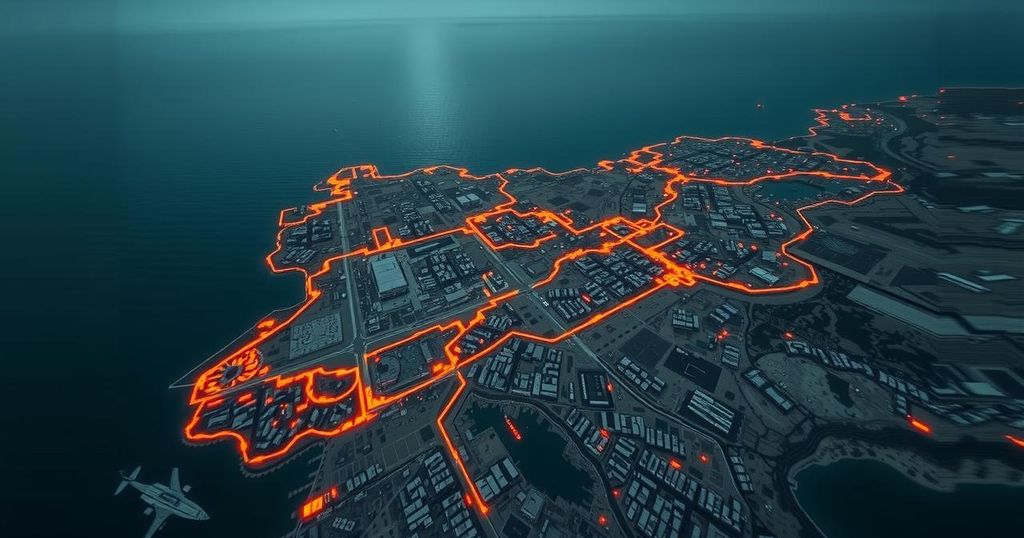The Fragile Illusion of Assad’s Stronghold in Syria Crumbles
The Assad regime’s perceived stability is challenged by a swift opposition resurgence in Syria. An offensive led by Jabhat al-Nusra reached Aleppo, signaling vulnerabilities within Assad’s support system, particularly as Iran, Hezbollah, and Russia shift priorities. The historical context of the dynasty’s challenges illustrates a growing discontent among the Syrian population, raising questions about the regime’s long-term viability.
The perception of President Bashar al-Assad’s control over Syria has been severely undermined following a recent resurgence of opposition forces. While international observers had previously believed that Assad’s regime had regained stability with support from allies Iran, Hezbollah, and Russia, a swift offensive led by the rebranded Jabhat al-Nusra has shattered that illusion. Within a mere three days, these forces advanced to the heart of Aleppo, sparking widespread reports of government collapses and rebel offensives toward Hama, a historically significant region for the Assad dynasty.
The apparent ease of this offensive raises critical questions about the reliability of Assad’s support system. Notably, Hezbollah has diverted its focus to confrontations with Israel after October 7, 2023, significantly diminishing its presence in Syria. Meanwhile, Russia, which had previously bolstered Assad’s regime with military support since 2015, is now prioritizing its efforts in Ukraine. Similarly, Iranian forces in Syria have been increasingly vulnerable due to persistent Israeli attacks. These shifts suggest a convergence of factors that have weakened the long-standing grip of the Assad regime.
However, it is important to contextualize the present crisis within the broader historical narrative of the Assad family’s rule, which has endured since 1971. Though the regime’s survival through past internal and external challenges is notable, the continual degradation of living conditions for Syrians underscores the regime’s failures. With hundreds of thousands dead and millions displaced, the disillusionment with the Assad dynasty’s ability to govern effectively is palpable. Hence, the recent developments raise the pivotal question of whether the regime can withstand emerging challenges or if this may signify a pivotal turning point in Syria’s ongoing turmoil.
The Assad dynasty has been an enduring presence in Syrian politics since Hafez al-Assad assumed power in 1971, continuing through his son Bashar al-Assad after Hafez’s death in 2000. The regime has faced various uprisings and conflicts, particularly during the Arab Spring in 2011, which resulted in widespread protests across the region, including Syria. Despite initial setbacks, external support from Iran, Hezbollah, and Russia has allowed the regime to maintain its foothold amidst violent upheaval and insurgency. However, underlying issues such as corruption, economic mismanagement, and declining living conditions for the populace have long plagued the Assad administration, leading to chronic instability.
The recent military advances by opposition forces in Syria signal a precarious moment for Bashar al-Assad’s regime, once deemed secure by international observers. The retreat of key allies, including Hezbollah, and the shifting focus of Russia towards the conflict in Ukraine have contributed to a rapid deterioration of Assad’s authority. While the Assad dynasty has proven resilient over decades, the evolving dynamics within the region suggest that continued stability may be increasingly elusive. The situation poses critical implications for Syria’s future, warranting attentive observation by international stakeholders.
Original Source: www.cnn.com




Post Comment